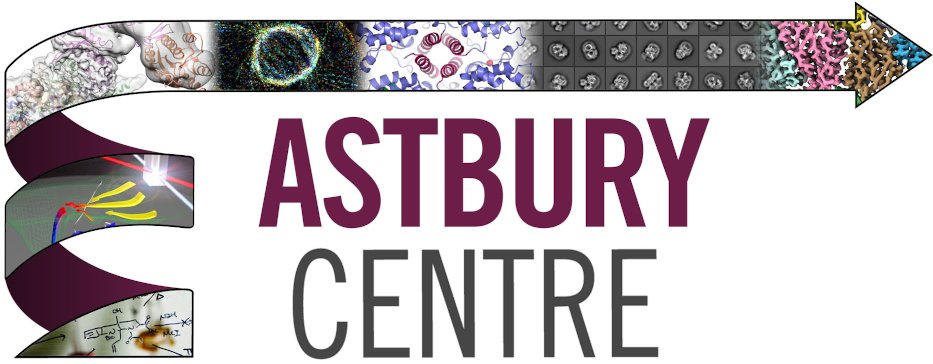Research

The Astbury Centre brings together structural molecular biologists, cell biologists, chemists and physicists who want to use the power of interdisciplinary science to understand the dynamic biological processes that underpin life. We are working to understand how the structure and function of a wide range of biological molecules (and the complexes they make) underpin the function of healthy cells and to understand what goes wrong in disease. The Astbury Centre specialises in all major techniques for high-resolution structure determination of large molecules, including cryo-electron microscopy, NMR spectroscopy, X-ray crystallography, as well as a battery of sophisticated biophysical tools such as mass spectrometry, confocal and super-resolution imaging, atomic force microscopy amongst many others.
Crucial to the mission of the Centre is to integrate the results of structural studies with powerful programmes of functional analysis, and further support our discoveries by theoretical analyses such as bioinformatics, molecular modelling and simulation. Our mission is therefore to use the power of modern integrated structural biology to drive new biological and biomedical discovery, and deliver on our ultimate aim: to understand life in molecular detail.
Research Themes
Our research themes address major impact-oriented challenges by drawing on the full breadth of our interdisciplinary capabilities. In each theme, there is a buoyant portfolio of research involving large numbers of PIs within the Centre that additionally draws on our partnerships with academic, clinical and industrial collaborators. The themes are part of broader remit of Astbury Centre which is to harness interdisciplinary approaches to understand life in molecular detail.
Research Capabilities
We harness the power of interdisciplinary science to unravel the molecular mechanisms that underpin life. We develop and harness a wide range of techniques, often in combination, to address major research questions. We have outstanding research capabilities in structural molecular biology, biophysics, chemical biology and molecular interactions in cells.
News
Researchers discover new insights into a key protein in cell division and cancer
A study, led by University of Leeds and University of Oxford, has revealed new knowledge about an enzyme involved in cancer treatment. The enzyme, called Aurora-A, is currently used as drug target for some lung cancers because it plays an important role in controlling cell division. These current cancer treatments work by blocking Aurora-A completely...
Scientists develop artificial sugars to enhance disease diagnosis and treatment accuracy
Scientists have found a way to create artificial sugars that could lead to better ways to diagnose and treat diseases more accurately than ever before, according to a new study co-led by Leeds. They hope their findings could eventually lead to simple, at-home tests for diseases such as cholera, which can kill within hours, and...
New Mass Spectrometry Frontiers
For the first time, academics in the Astbury Centre have recorded the highest mass-to-charge ratios ever measured on an Orbitrap machine. But how did they do it? A recently developed technique, called electron capture charge reduction, reduces charge in biomolecular structures. It’s now offering huge promise for analysing larger sized proteins – a current limitation...
